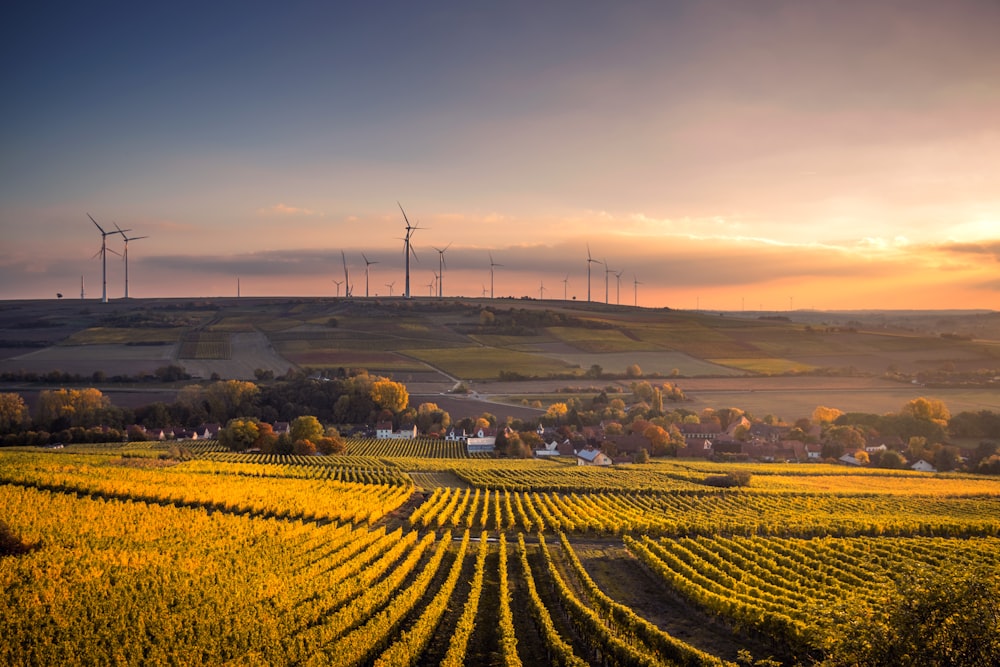
Unlocking Potential Diverse Applications of Renewable Energy
Unlocking Potential: Diverse Applications of Renewable Energy
Powering Homes and Businesses
Renewable energy has become a cornerstone of modern living, offering sustainable solutions for powering homes and businesses alike. Solar panels adorn rooftops, harnessing the power of the sun to generate electricity, while wind turbines stand tall in fields and offshore, capturing the kinetic energy of the wind. These renewable sources provide a reliable and environmentally friendly alternative to traditional fossil fuels, reducing carbon emissions and mitigating climate change.
Transportation Revolution
In recent years, the transportation sector has undergone a revolution fueled by renewable energy. Electric vehicles (EVs) are becoming increasingly popular, powered by electricity generated from renewable sources such as solar and wind. Charging stations powered by renewable energy are popping up across the globe, offering drivers a clean and sustainable way to fuel their journeys. From cars and buses to trains and ships, renewable energy is driving the transition to a cleaner, greener future for transportation.
Sustainable Agriculture Practices
Renewable energy is also making waves in the agricultural sector, offering sustainable solutions to power farms and enhance productivity. Solar panels can be installed on farmland to generate electricity for irrigation systems, machinery, and storage facilities, reducing reliance on grid electricity and fossil fuels. Additionally, renewable energy can be used to power agricultural processes such as crop drying, food processing, and livestock management, promoting sustainable practices and reducing environmental impact.
Clean Water Solutions
Access to clean water is essential for life, and renewable energy plays a crucial role in providing sustainable solutions for water purification and desalination. Solar-powered water purification systems utilize sunlight to kill harmful bacteria and pathogens, providing clean and safe drinking water in remote or underserved areas. Similarly, solar-powered desalination plants convert seawater into freshwater using renewable energy, addressing water scarcity challenges and promoting sustainable development.
Green Building and Infrastructure
The construction industry is embracing renewable energy as a means to create greener, more sustainable buildings and infrastructure. Solar panels can be integrated into building design, providing on-site electricity generation and reducing reliance on grid electricity. Wind turbines can also be incorporated into urban landscapes, generating clean energy and reducing carbon emissions. Additionally, renewable energy technologies such as geothermal heating and cooling systems are being used to enhance energy efficiency and reduce environmental impact in buildings.
Environmental Remediation and Conservation
Renewable energy is not only about generating electricity but also about protecting and preserving the environment. Solar-powered remediation systems can be used to clean up contaminated sites by treating soil and groundwater using renewable energy. Wind energy can also be harnessed to power environmental monitoring and conservation efforts, such as wildlife tracking and habitat restoration. By harnessing renewable energy, we can mitigate environmental damage and promote the conservation of natural resources for future generations.
Disaster Resilience and Emergency Response
Renewable energy plays a crucial role in disaster resilience and emergency response efforts, providing reliable and resilient power solutions when traditional infrastructure fails. Solar-powered generators and microgrids can be deployed to provide electricity in disaster-stricken areas, enabling essential services such as communication, medical care, and water purification. Wind turbines can also be used to generate electricity in remote or off-grid locations, offering a lifeline during times of crisis.
Educational and Research Initiatives
Renewable energy is not only about practical applications but also about education and research. Educational initiatives and research projects are helping to advance our understanding of renewable energy technologies and their potential to transform society. From university programs and research institutes to hands-on workshops and community outreach events, renewable energy education is empowering individuals and communities to embrace clean and sustainable energy solutions.
Economic Opportunities and Job Creation
The renewable energy sector offers significant economic opportunities and job creation potential, driving innovation, investment, and employment growth. As the demand for renewable energy technologies continues to rise, so too does the need for skilled workers in fields such as engineering, manufacturing, installation, and maintenance. Additionally, renewable energy projects create spin-off benefits for local economies, supporting businesses, industries, and communities across the supply chain.
Global Collaboration and Sustainable Development
Renewable energy has the power to transcend borders and unite nations in the pursuit of sustainable development and climate action. International collaborations and agreements such as the Paris Agreement and the United Nations Sustainable Development Goals (SDGs) are fostering global cooperation to address climate change and promote renewable energy adoption. By working together, we can unlock the full potential of renewable energy and build a more sustainable and prosperous future for all.
Renewable energy is not just a buzzword; it is a transformative force that is reshaping our world for the better. From powering homes and businesses to revolutionizing transportation and agriculture, the uses of renewable energy are diverse and impactful. By embracing renewable energy solutions, we can create a cleaner, greener, and more sustainable future for generations to come.



